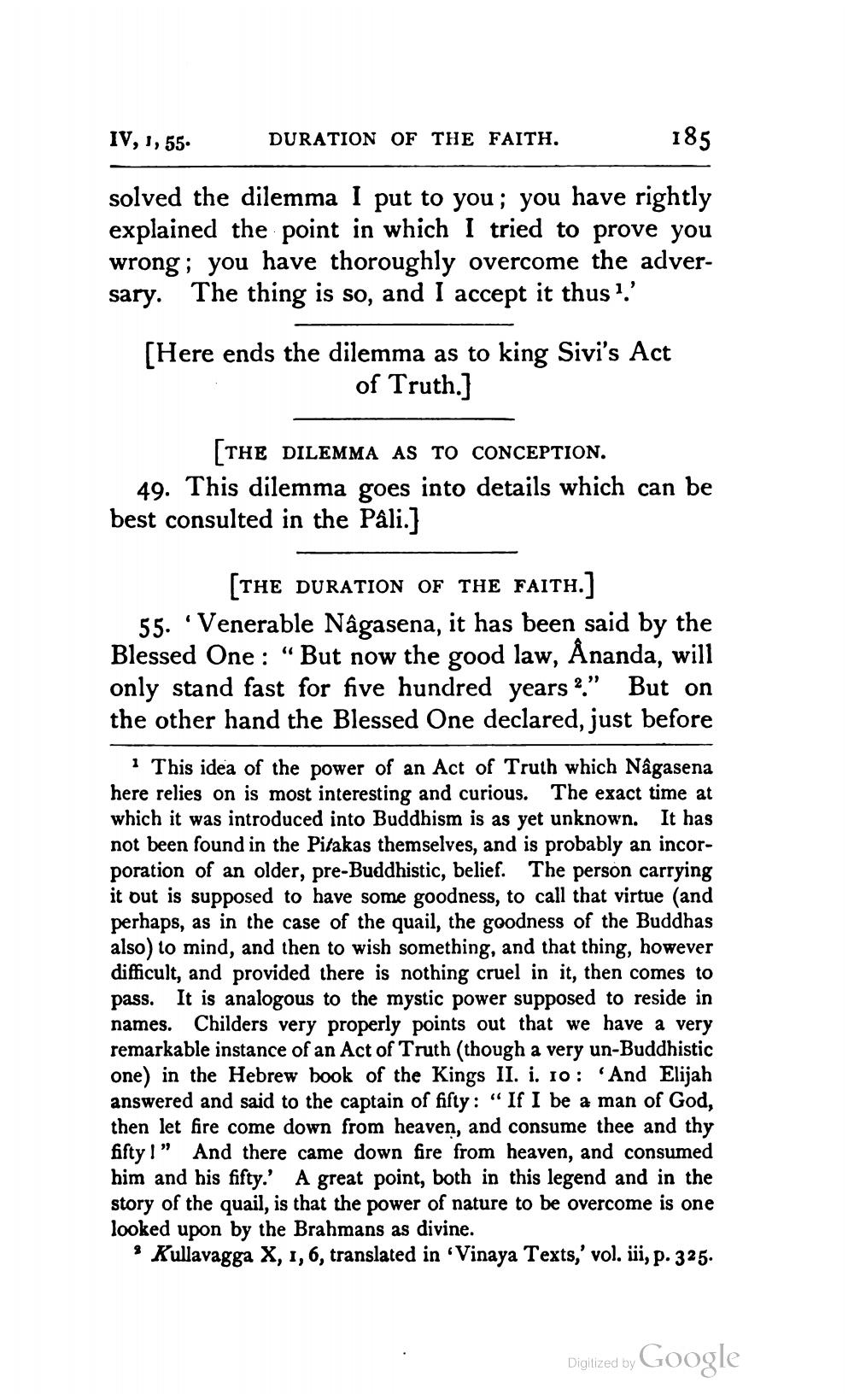________________
185
IV, 1, 55.
solved the dilemma I put to you; you have rightly explained the point in which I tried to prove you wrong; you have thoroughly overcome the adversary. The thing is so, and I accept it thus '.'
DURATION OF THE FAITH.
[Here ends the dilemma as to king Sivi's Act of Truth.]
[THE DILEMMA AS TO CONCEPTION.
49. This dilemma goes into details which can be best consulted in the Pâli.]
[THE DURATION OF THE FAITH.]
55. 'Venerable Nâgasena, it has been said by the Blessed One: "But now the good law, Ânanda, will only stand fast for five hundred years 2." But on the other hand the Blessed One declared, just before
1 This idea of the power of an Act of Truth which Nâgasena here relies on is most interesting and curious. The exact time at which it was introduced into Buddhism is as yet unknown. It has not been found in the Pitakas themselves, and is probably an incorporation of an older, pre-Buddhistic, belief. The person carrying it out is supposed to have some goodness, to call that virtue (and perhaps, as in the case of the quail, the goodness of the Buddhas also) to mind, and then to wish something, and that thing, however difficult, and provided there is nothing cruel in it, then comes to pass. It is analogous to the mystic power supposed to reside in names. Childers very properly points out that we have a very remarkable instance of an Act of Truth (though a very un-Buddhistic one) in the Hebrew book of the Kings II. i. 10: 'And Elijah answered and said to the captain of fifty: "If I be a man of God, then let fire come down from heaven, and consume thee and thy fifty! And there came down fire from heaven, and consumed him and his fifty.' A great point, both in this legend and in the story of the quail, is that the power of nature to be overcome is one looked upon by the Brahmans as divine.
99
* Kullavagga X, 1, 6, translated in 'Vinaya Texts,' vol. iii, p. 325.
Digitized by Google




